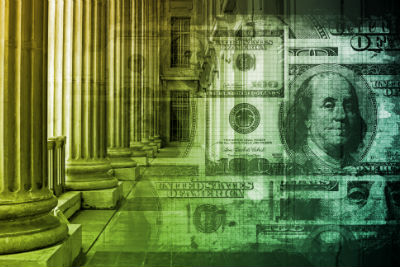
The reality most Americans must confront in 2021 remains difficult. Unemployment is still too high. Vaccines are being distributed but people and small businesses are still struggling to deal with the pandemic. With this reality and the glimmer of hope that approaches through more vaccines, policymakers need to take all necessary steps to support struggling Americans, instead of proposing policies that would make it harder to survive the pandemic.
Distressingly, some in DC are floating the idea of making access to credit more expensive for low-income consumers. By pushing to cap funds merchants pay to process credit card payments, lobbyists in DC would be transferring $40 billion to $50 billion a year away from consumers and into the hands of some of the most profitable retailers in the world – notably Target, Walmart, and Amazon. Unfortunately, the companies that profited the most from the pandemic are now seeking another multi-billion-dollar bailout to further increase their profits. In the end, consumers would lose.
How do we know? These same companies made a similar play when they won a lobbying battle over debit cards in 2010. (aka the “Durbin Amendment”). The result was that banks lost revenue on debit card fees, so they added more fees on checking accounts, added higher account balance requirements, and reduced free checking – a wealth transfer of $90 billion from consumers and small financial institutions to the big box stores. The Federal Reserve has documented this phenomenon in the past, but more telling is the account of the Congressional Black Caucus Institute. They wrote that debit regulation “was passed on the assumption that the savings made by merchants would be passed on to consumers. Unfortunately, plenty of evidence exists that this has not occurred.” Why should Americans struggling to afford food and basic medical care during the pandemic subsidize rich companies that too often manage to avoid taxes?
To put the current market into context, Americans have $4 trillion in available credit with financial institutions. If a consumer chooses, they can go online or to virtually any store in the US and leverage a bank’s capital to make a purchase. Aside from any interest, they can largely do this free. This is not the case in countries that have bowed down to special interests. In Australia, for example, there are virtually no free credit cards. A basic credit card with zero rewards is typically $60 yearly in annual fees. In contrast, the Consumer Financial Protection Bureau reports American banks pay the average credit card user $167 a year.
More than the rewards, the ability to have banks finance transactions is an important benefit for consumers. This expanded purchasing ability in the US is worth $300 billion annually to consumers. When people have unexpected expenses, like a major repair bill for their car or home, credit cards often provide the most convenient – and sometimes only – way to cover those bills in the immediate term.
If lobbyists in DC were to succeed in upending the current credit system, banks will react the same way they did with debit card legislation. Banks would tighten credit standards, raise account fees, and eliminate billions of dollars flowing annually to consumers.
We should be clear with our elected officials in Washington that credit does not need to be more expensive for struggling Americans, and the corporate elite does not need consumers to hand them billions more. Our elected officials should focus on making sure we have better health care, quality of life, and education – not another favor for the most profitable corporations.
Letter from Eric Payne/Richmond










